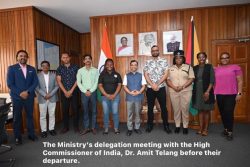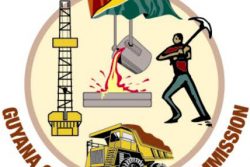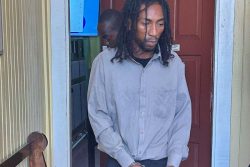Saturday’s election of Mr Irfaan Ali as the PPP/C presidential candidate for the general elections to be held in three months from December 21st is unsurprising. It is demonstrative of the stranglehold that former President and PPP General Secretary Bharrat Jagdeo has on the party, formerly of the Jagans, although the margin of victory – 24 to 11 – over the high-profile former Attorney General Anil Nandlall is eye-opening. The PPP has undoubtedly picked up a second and third wind from its big wins at the November 12 Local Government Elections (LGE) followed by the stunning defeat of the ruling APNU+AFC coalition in Parliament over the December 21 motion of no-confidence. Its supporters are undoubtedly buoyed by these developments and would want general elections to be held soonest to capitalise on this momentum.
The election of Mr Ali by the 35-member Central Committee can however end up being the ultimate Pyrrhic victory for him and his party. As much as Mr Jagdeo has command of the proceedings in the PPP this doesn’t sit well with independent thinkers, swing voters and those tired of corruption and cronyism. The PPP will struggle to attract new voters even if most of its base is held in thrall by these latest developments. Much will also depend on Mr Ali’s ability to connect with the base and other voters. While Mr Ali will undoubtedly make his case to the electorate and will have his own ideas and plans, there are no degrees of separation between him and Mr Jagdeo. He is now beholden to the former President for his preferment and he appears to be completely comfortable with returning the favour. For Mr Jagdeo, if Mr Ali were to succeed, this would be the closest he could ever come to a third term in office which was finally proscribed by the Caribbean Court of Justice (CJJ) last year.
The Ramotar presidency was blighted by the same stigma i.e. that without Mr Jagdeo’s orchestration of proceedings at the Central Committee of the party, the position of presidential candidate and ultimately the presidency would not have been in the offing. Thereafter, particularly at the head of a minority government, Mr Ramotar had to often fend off contentions that Mr Jagdeo loomed large in the wheelhouse of the presidency. While Mr Jagdeo did not have an overt role in the Ramotar presidency he will have one if the PPP/C were to win the Presidency again. He has made it clear on a number of occasions – particularly after the ruling of the CCJ on the third term – that he will have a major role to play in any future PPP/C government.
Given Mr Jagdeo’s controversial record as a two-term-plus President (1999 to 2011), the beginnings of the spectacular collapse of sugar, jobless growth, lack of diversification of the economic bases of the country, the questionable assignment of state assets and contracts to cronies, the total breakdown of law and order following the prison break in 2002 and the subcontracting of the crime fight to drug lords and others, no independent-minded voter would want him controlling the destiny of the country particularly with the impending oil and gas economy.
Mr Ali therefore faces the enormous task of convincing the public that he is independent-minded and that were he to be elected at the head of a PPP/C government that he will not only have a transformative vision for the bridging of the deep-seated divisions in the country and the engendering of good governance but that he would have the determination and wherewithal to resist direction from Mr Jagdeo. It is a huge ask.
Mr Ali’s election came a day after the unveiling of A New and United Guyana (ANUG) with former Speaker of the National Assembly and senior counsel Ralph Ramkarran, former minister Henry Jeffrey and attorney Timothy Jonas among its leading lights. The arrival of this party must be welcomed as it heralds from the outset a determination to make governance more accountable than it has been for the last 50 years of the independence of the country. It is prepared to make key commitments justiciable. This is particularly poignant in the backdrop of APNU+AFC’s shocking abdication in the pursuit of constitutional reform it had solemnly promised the electorate and the AFC’s abject failure to play the role of a balancer in the present administration. ANUG’s determination to catalyse shared executive government as a means of healing ethnic anxieties and hurt will be seen as idealistic and unlikely when reckoned against the barren landscape in both of the main parties. Nevertheless, at the minimum, were ANUG to be elected to parliament and were the results of the general election to be as close as they were in 2015, both of the main parties would have to confront the stark reality that compromises would have to be made for a viable government and a stable country. Only the most blinkered politician would be oblivious to the national instability posed by the one-seat majorities held by the opposition in 2011 and the government in 2015.
The two-sided National Assembly since 2015 has deepened the toxicity of the political engagement between APNU+AFC and the PPP/C as underlined by the defection of Charrandass Persaud on the night of the no-confidence vote. More parties in Parliament like ANUG and Mr Shuman’s Liberty and Justice Party and others would create a platform for nurturing consensual policies on the type of governance best suited to the country, the accountability framework and detailed preparations for first oil. The upcoming general elections provides yet another opportunity for the politicians and their parties to recognize the deep-seated divisions in the country and to not only pay lip service to this matter put to present manifestos that state precisely their plans and how they will be made to live up to them. ANUG has made a positive contribution to the political climate by declaring its preparedness to make its commitments legally enforceable and this has raised the bar of discussion. It is left to be seen what influence this has on the wider politics.







